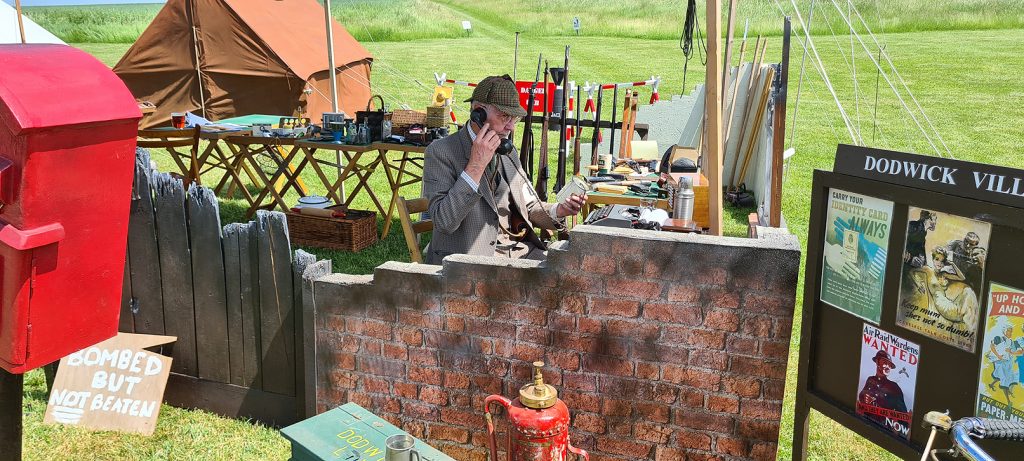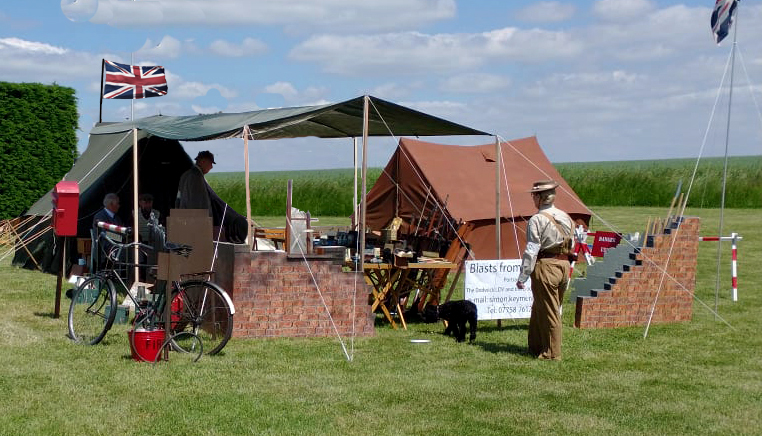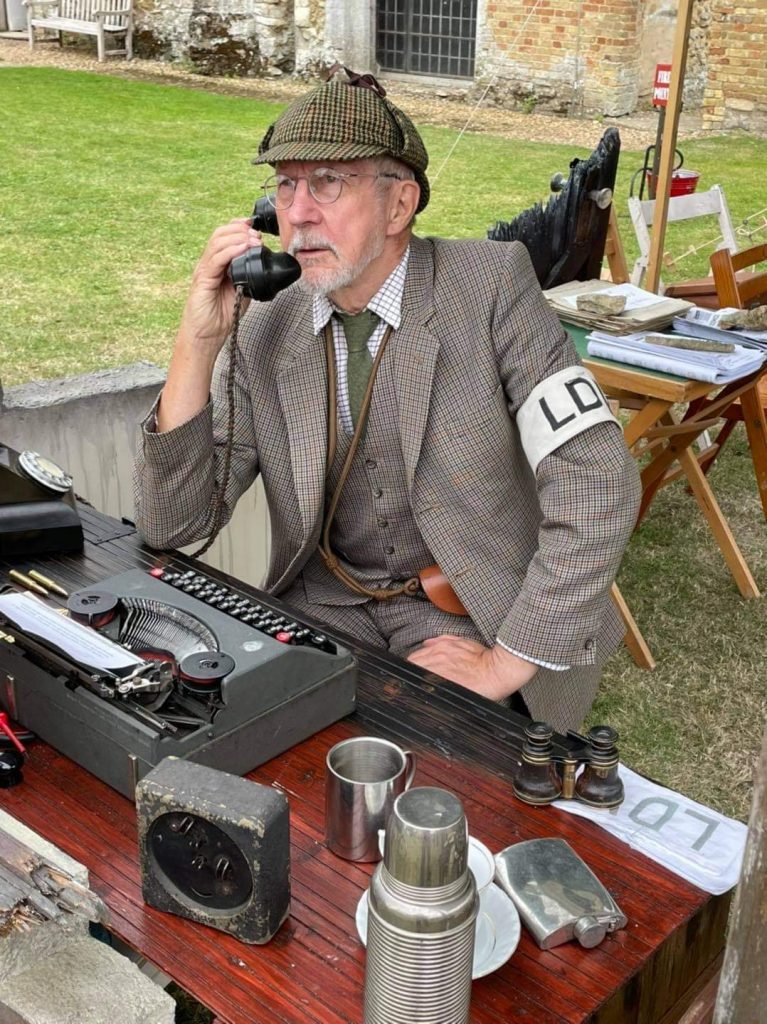(LOCAL DEFENCE VOLUNTEERS)
On the evening of Tuesday 14 May 1940, the Government made an urgent appeal over the radio to all men aged between 17 and 65. They wanted all men, not already serving in the armed forces, to become part-time soldiers. They expected a few thousand to answer this call but within 24 hours of the radio broadcast a quarter of a million men had volunteered. By the end of July this number had risen to over a million, the powers that be were overwhelmed and to start with could not cope.
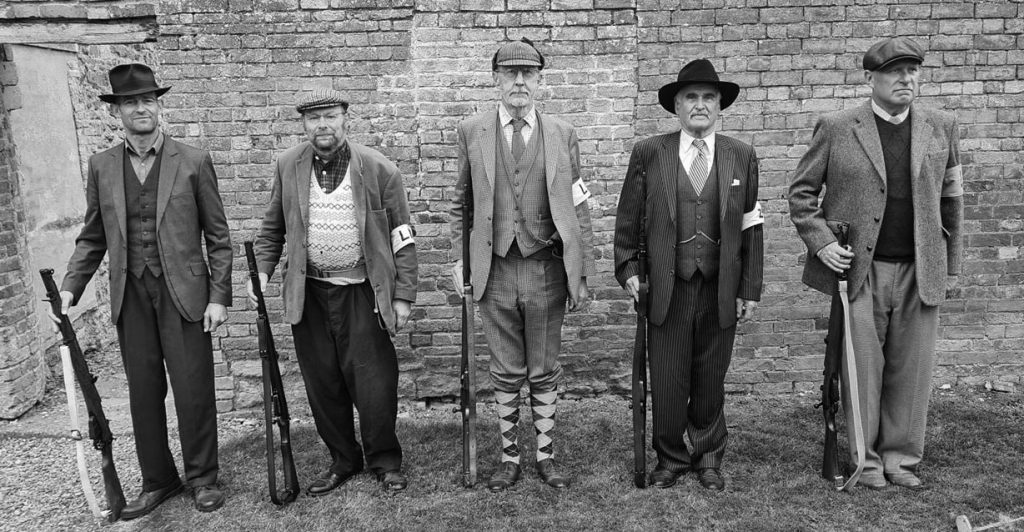
The LDV and later the Home Guard (HG) battalions were attached, or affiliated to the local Territorial Army Association and Regiment. The original organisation was on a company basis, but within a couple of months of the broadcast, the country was organised largely on a zone basis. But a number of units also came into being which involved personnel, whose civilian employment placed them on a different footing from the general service battalions, regardless of the fact that they lived and worked in a battalion area. Examples include government departments such as the Civil Service, and the Post Office, also some large factories had their own LDV/HG unit.
Many of the men who joined the Local Defence Volunteers were those who could not join the regular army because their day time jobs were necessary to keep the country running. They included farmers, railway and dockworkers, bakers, teachers, grocers, bank staff and other such people. The other men who joined were either too young or too old to join the regular army. Against all the rules some groups allowed women to join to help in a supporting role.
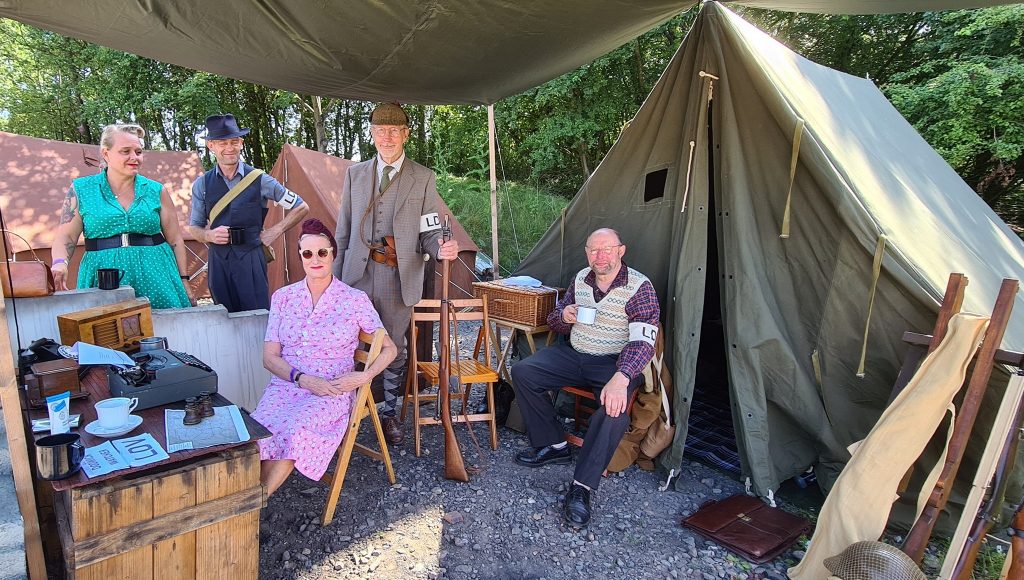
The men were given military style training and at first they had no uniforms, apart from an armband printed with the initials LDV, and very little equipment. The public were invited to give their shotguns and pistols to the new Local Defence Volunteers and within a few months over 20,000 weapons (some antiques) were handed in. That could never happen today as today’s Firearms Laws severely restrict who may own such weapons. Many of the men made their own weapons as well, it was a time for ingenuity where everyone equipped themselves the best they could.
At night (dusk until 1 hour after dawn) they patrolled open areas in which enemy gliders or paratroopers might land and defended key targets like factories, utilities and beaches. No one expected them to beat well-trained German soldiers; their job was to slow them down until the army arrived. Other important tasks were the manning of road blocks and checkpoints to examine identity papers in order to catch spies and saboteurs and also to see that garages and the like followed the compulsory instruction that petrol pumps were immobilised at night.
At the end of July 1940, at the command of Winston Churchill, the name was changed from the Local Defence Volunteers to the Home Guard, a name with which we are all familiar.
